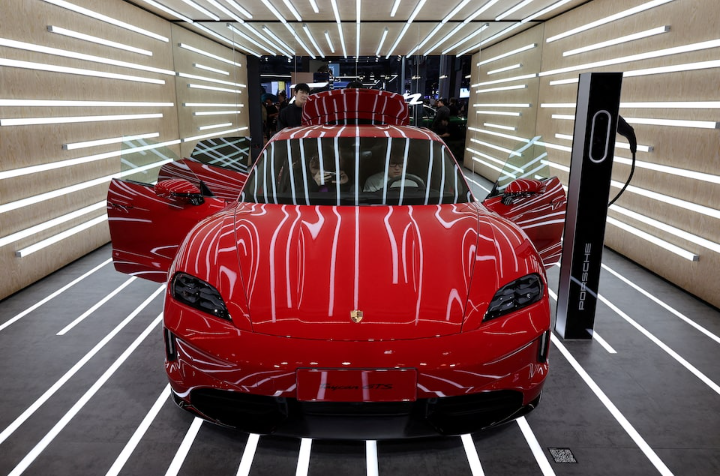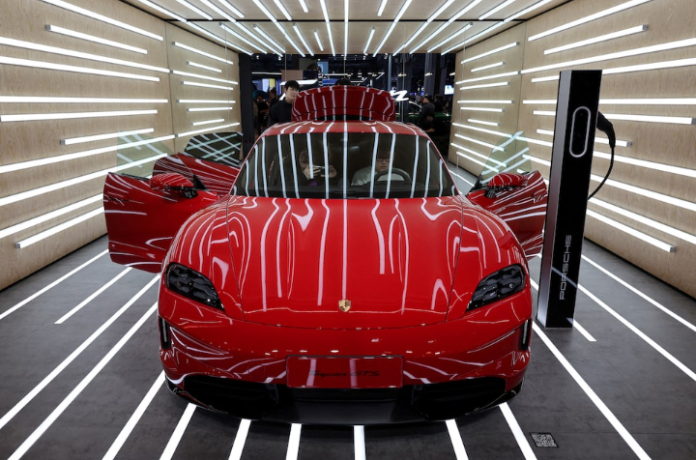Foreign automakers are facing an uphill battle in China’s rapidly changing car market, with legacy brands like Porsche finding it increasingly difficult to maintain their dominance. The first quarter of 2025 has seen Porsche’s sales in China plummet by a staggering 42%, shedding light on the broader issues foreign brands face in the country.
While Porsche is still widely regarded as a premium brand worldwide, it is finding that its traditional appeal isn’t enough to attract Chinese buyers anymore. The market, once a stronghold for foreign luxury brands, is now flooded with innovative and affordable electric vehicles (EVs) produced by domestic companies. These Chinese manufacturers are offering cutting-edge technology and sleek designs at prices that challenge established European and American automakers.
Porsche’s struggles are a perfect reflection of the changing landscape. The company, which was once selling nearly a third of its global cars in China, is now struggling to keep pace with local competitors like BYD, Nio, and even new entrants like Xiaomi. At the Auto Shanghai show in April 2025, Porsche showcased two limited-edition variants of its iconic 911, but these efforts failed to resonate with the modern Chinese consumer, who is increasingly turning to homegrown EV brands for their futuristic designs and advanced features.
The Chinese EV boom has shifted the focus from traditional combustion engines to electric drivetrains, and Porsche’s reluctance to fully embrace this transition is costing the company dearly. In stark contrast, Xiaomi’s entry into the car market with its electric SU7 sport sedan has sparked huge interest, garnering over 10,000 pre-orders within hours of its announcement. The SU7 offers Porsche-like aesthetics but at a fraction of the cost, with prices starting at just 529,900 yuan ($72,591) – significantly lower than Porsche’s cheapest 911, which sells for over 1.4 million yuan ($201,170).
The success of domestic EV brands like BYD and Xiaomi is further compounded by the fact that they are not only innovating faster but also offering vehicles with higher tech and luxury features at competitive prices. For instance, BYD’s premium Yangwang brand and Nio’s expansion into higher-end EVs are making foreign brands look outdated. Porsche, along with other foreign automakers, is now finding it difficult to keep up with the speed at which Chinese companies are adapting to market demands.

Porsche’s China sales have been on the decline for three consecutive years, and despite assurances from its CEO, Oliver Blume, that the company isn’t worried about volume, the numbers tell a different story. Blume hinted that Porsche might abandon the electric vehicle segment in China entirely, as the company is finding it tough to compete in a market where over half of all new cars sold are EVs.
The dominance of Chinese automakers in China’s car market appears irreversible. Even traditional premium brands like General Motors (GM) are having to re-evaluate their strategies. GM is pouring $1.4 billion into revamping its operations in China, hoping to regain its footing. Meanwhile, Buick has doubled down on the MPV segment, where it continues to lead, but even here, Chinese competitors are catching up with high-tech models offering features like built-in refrigerators and massaging seats.
In conclusion, the rapid rise of domestic EV brands in China has created a new reality for foreign automakers. The market is evolving at a pace that legacy brands are struggling to match, and for companies like Porsche, the challenge is to adapt or risk losing their place in the world’s largest car market.



